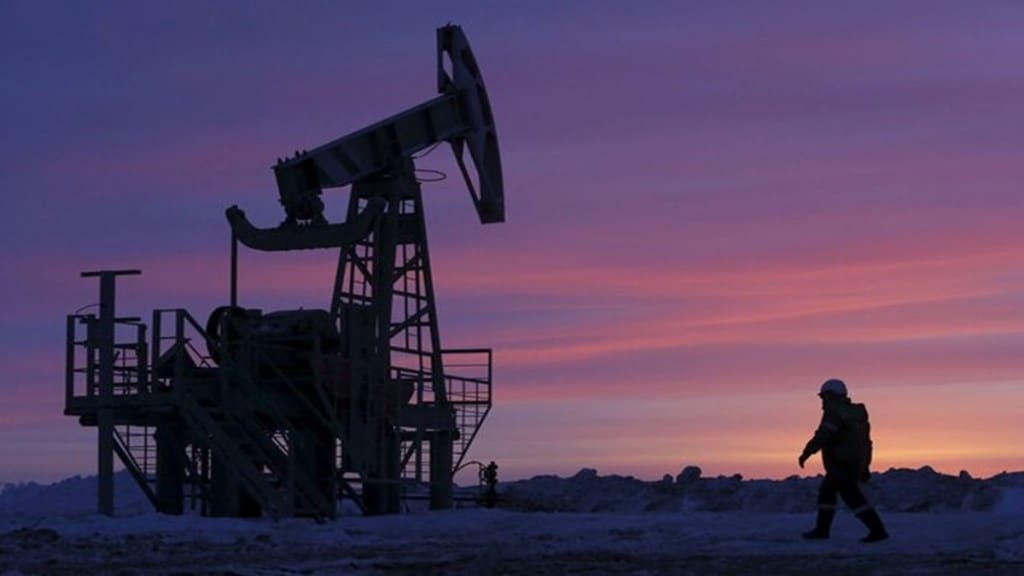Refiners in India — in particular Reliance Industries (RIL) — are poised to sharply reduce imports of Russian oil after the Donald Trump administration announced sanctions on state-run oil giants Rosneft and Lukoil. The two companies account for about 60% of the volumes purchased by Indian refiners.
RIL, sources said, will have to stop importing oil under its long-term deal to buy nearly 500,000 barrels per day of crude from Rosneft. RIL, India’s largest buyer of Russian crude, accounting for roughly half of the country’s 1.7 million barrels per day of imports from Moscow, has no option but to recalibrate its imports.
“Reliance will be fully aligned to GoI (Government of India) guidelines,” a Reliance spokesman said in response to a query by Reuters on whether the company plans to cut its crude imports from Russia. The RIL stock ended 1.17% lower at Rs 1,448.05 on the Bombay Stock Exchange.
Nayara Energy, in which Rosneft holds a 49.13% stake, is the other big private sector buyer of Russian oil. The company, which operates a 20-million-tonne-a-year oil refinery at Vadinar in Gujarat, has already been sanctioned by the European Union and it may have to recalibrate its purchases.
Oil prices immediately spiked in response to the sanctions, with Brent advancing as much as 5.50% at 9.45 PM on Thursday to trade above $66 a barrel. The renewed threat of disruption to Russian supplies galvanises a global oil market that has been bracing itself for a dramatic supply glut.
Prashant Vasisht, senior vice president and co-group head, corporate ratings at Icra, said, “While India can substitute the purchases from Russia with suppliers from West Asia and other geographies, the import bill for crude oil would increase. On an annual basis the replacement by market priced crude would lead to an increase in import bill by less than 2%.”
India’s public sector refiners are assessing compliance risks but are unlikely to halt Russian crude flows immediately as they buy almost all of their needs from traders, mostly European who are out of the sanctions net. They are, however, reviewing their Russian oil trade documents to ensure no supply will be coming directly from Rosneft and Lukoil.
“With this sanctions move, the Indian refiners may have to pull back way faster,” said Vandana Hari, founder of Singapore-based market analysis firm Vanda Insights. The sanctions and the resultant drop in Russian oil imports come as India faces punishing 50% tariffs on its exports to the US — with half of those duties in retaliation for Russian oil purchases — and negotiates a potential trade deal that could bring those tariffs in line with Asian peers in exchange for winding down crude imports from Moscow.
In the short term, the sanctions will mean that orders due to be placed over the coming week — for crude that will be loaded in November and delivered in December — will now be overwhelmingly from other destinations. Spot negotiations for Urals cargoes have already been muted since mid-October, when US President Donald Trump said Prime Minister Narendra Modi had vowed to halt purchases of Russian crude, leaving buyers reluctant to take major positions.
India became the largest buyer of Russian crude since Moscow’s 2022 invasion of Ukraine, importing about 1.7 million barrels per day, though the purchases have come off quite a bit in recent months. So far this year, India has taken just over 36% of its imports from Russia, according to analytics firm Kpler. Rosneft and Lukoil together export 3.1 million barrels of oil per day and the former alone is responsible for 6% of global and nearly half of all Russian oil production.
Meanwhile, the US has given all importing companies until November 21 to wind down their transactions with the Russian oil producers, according to a release on the sanctions. The Treasury Department, the release said, blacklisted the two companies because of “Russia’s lack of serious commitment to a peace process to end the war in Ukraine.”
The curbs mark a U-turn for Trump, who had held off on major sanctions and announced earlier this month that he would meet Russian President Vladimir Putin in the coming weeks. It is also a radical change for Western policy around Russian oil, where previous efforts including a Group-of-Seven cap on prices had sought to limit revenue for the Kremlin but without impacting the flow of barrels.


